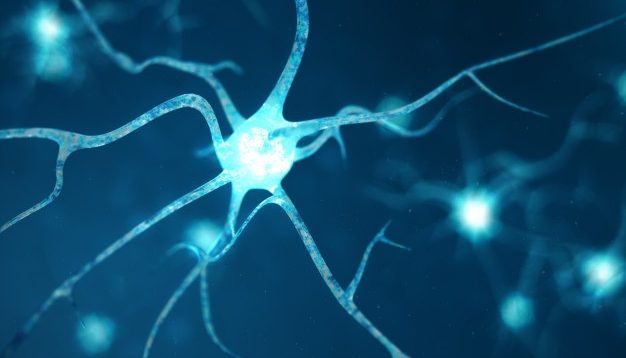Description
Generally
Neurodegenerative diseases, due to the aging of the population, are an ever-increasing burden for patients and carers. In these diseases, there is a progressively deteriorating clinical picture, due to a progressive degeneration of the neurons of the Central Nervous System. Such diseases are Alzheimer’s disease (AL), other forms of dementia, such as frontotemporal dementia (MCA), Parkinson’s disease (NP), lateral myotrophic sclerosis (Kinetic Neuron Disease, NSC) and Huntington’s disease (NH). Also, multiple sclerosis, despite being a predominantly neuroimmune disease, has an undeniable neurodegenerative dimension. All these diseases affect a total of hundreds of thousands of Greek citizens and their families.

Research efforts in recent years have made it clear that the clinical-symptomatic phase of neurodegenerative diseases is preceded by an early – preclinical phase of 15-20 years (possibly longer) of neurodegenerative pathological lesions in the brain. Clinical deficits occur when the accumulation of such lesions has either mobilized additional biological pathways in the form of an avalanche, or has led to the destruction of a sufficient amount of neurobiological mass so that the mental reserves – stock are no longer sufficient. A better understanding of this long-term pre-symptomatic stage has been made possible through the development of neurodegenerative and other biomarkers in CNS, as well as imaging methods with new probes for neurodegenerative biomarkers and other neurobiological factors (especially PET and SPECT). This extended preclinical stage has been demonstrated in both sporadic and genetic forms of neurodegenerative diseases.
Efforts to understand the preclinical stages continue unabated worldwide and simultaneously involve many approaches:
There is already a revolution in the field of monogenic diseases in Neurology, as rapidly targeted, individualized therapies are being developed to address specific genetic forms of neurological diseases, particularly neurodegenerative ones. In most cases, these are treatments that are in the Clinical Trials phase, but are expected to be available on a wider basis in the coming years for patients with monogenic neurodegenerative diseases. It is important to identify patients who are in the early stages of these conditions so that they are ready to receive these future targeted therapies.
Today in Greece there are a number of studies that have focused on early – preclinical diagnosis of neurodegenerative diseases. In addition, there are Centers that carry out a systematic recording of cases of neurodegenerative diseases, and maintain collections of biological material. Studies are being done in this biological material, in order to make a more accurate diagnosis and in some cases, such as multiple sclerosis, to weigh the response to treatment with nosocomial treatments. Efforts are also being made to develop new biological markers, as well as to develop models of neurodegenerative diseases at the cellular or animal model level, in order to test innovative therapeutic approaches.
In this context, the present Action of the National Medical Precision Network targets 3 Axes.
What are Neurodegenerative Diseases?
Neurodegenerative diseases (NE) are an umbrella term for a range of conditions that mainly affect neurons in the human brain and are usually recognized by symptoms such as reduced motor control, mood disorders and cognitive deficits. As the name suggests, conditions are characterized by neuronal degeneration. Neurons are nerve cells in the brain and spinal cord that are not usually reproduced or replaced. If the neurons are damaged, they can not recover, resulting in brain dysfunction and incurable diseases. Despite the similarities between neurodegeneration in the relevant situations, the origin of the causes may be different. Examples of SE include Parkinson’s, Alzheimer’s and Huntington’s disease.
NA are incurable and debilitating conditions that lead to progressive degeneration and / or death of nerve cells. This causes problems with movement (called ataxia) or mental function (called dementia).
Dementias are responsible for the greater severity of NA, with Alzheimer’s accounting for about 60-70% of dementia cases.
The SEs that EDIAN focuses on are:
Why is research into neurodegenerative diseases so important?
Europe has a rapidly aging population. At present, 16% of the European population is over 65 and this figure is expected to reach 25% by 2030. Today in Europe, around € 130 billion is spent annually on caring for people with dementia. With the increase in the life expectancy of the population, the number of affected people is also increasing.
NAs such as Alzheimer’s and Parkinson’s disease are debilitating and largely incurable conditions that are closely linked to age. Among these disorders, dementia is responsible for the greater burden of the disease, with Alzheimer’s disease and related disorders affecting more than 7 million people in Europe, and that number is expected to double every 20 years as the population ages.
Symptoms of nerve disorders include decreased mobility, memory loss, mood swings, decreased speech and more.
In the early stages, these dysfunctions do not affect patients significantly and they can continue to live an independent life. However, as the disease progresses, patients’ quality of life decreases dramatically until they need full-time care. Consequently, there is a significant social and economic burden in the course of the disease.
To date, there is a limited number of treatments used for NA and most of them treat only the symptoms and not the cause. In fact, no new drugs for Alzheimer’s disease have been approved in Europe in the last five years.
With this in mind, successful treatments to delay or reduce the symptoms of these debilitating conditions are vital in reducing the detrimental effects they have on individuals, families, societies and economies.
NA mimics cardiovascular disease and cancer as major causes of death. However, unlike cardiovascular disease and cancer, NA can not be cured or their progression can be significantly slowed down. While large investments have been made in diseases such as cancer and cardiovascular disease (and we have therefore seen significant improvements in treatment and patient outcomes), to date neurodegenerative diseases have not received the same level of funding, despite their large negative impact. in healthy years of life.
What is precision medicine?
Precision Medicine in SE refers to the better understanding of the clinical genetic phenotype of the patient, combining the pathology, biomarkers and genetic profile of the patient, with the aim of identifying pathological subtypes of diseases that can best respond to specific treatments.
The development of a Medical Precision approach represents an excellent opportunity to identify preclinical stages of NA, to make an adequate differential diagnosis and to provide timely and optimal treatment instead of the traditional treatments commonly used in advanced disease.
Mission of Medical Precision:
Translate research into clinical care by identifying patients who respond best to available and emerging therapies. Identification of new therapeutic goals based on a detailed understanding of the mechanisms of the disease.

